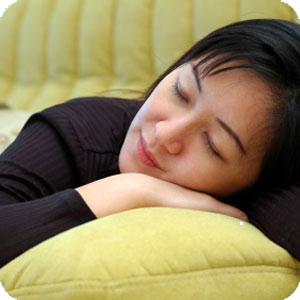recovery basics | pure air & water | nourishing food | restful sleep | exercise | detoxification | non-toxic lifestyle | emotional health | spirituality | energetic health | sexuality | brain/limbic system | dental health | organ health

Restful Sleep
Getting a good night’s sleep is important for everyone, and especially for those suffering from a chronic illness. Sleep deprivation can seriously impair one’s ability to think, handle stress, maintain a healthy immune system and manage emotions. Deep, rejuvenating sleep allows our body to rebuild itself on a cellular level, re-balance our hormone levels, get that all-critical REM (rapid eye movement) activity, and regenerate neurons responsible for memory and other cognitive functions within the cerebral cortex.
Follow our tips to increase your chances of getting a restorative night of sleep, every night:
• Go to sleep at the same time every night.
• Sleep in total darkness.
• Unplug all electrical appliances in your bedroom, and if possible, turn off the breaker to that room while sleeping.
• Get weekly massages.
• Take a hot shower or bath before bed (relaxes your muscles, and cleans off any fragrances that have seeped into your hair and body from the day).
• Avoid using the computer, phone, TV, and related electronics in the hours before going to sleep. If you need a distraction before bed, try reading a good book.
• Do not eat a heavy meal at dinner and eat no later than between 5 and 6 in the evening.
• Go to bed between 8 and 8:30pm so that you can get to sleep by around 9pm.
• Sleep on a chemical-free bed and use organic bedding and nightclothes.
• Use a Somavedic device in your home to create a healing energetic sphere in your living environment.
• If you have a miHealth device, run the SLEEP cycle before bed and/or sleep with the ESR (Emotional Stress Relief) or CHILL setting to help relax an overactive mind.
If you have trouble sleeping or suffer from insomnia, herbalist and Lyme expert Stephen Harrod Buhner suggests (in addition to many of the suggestions listed above):
1. Melatonin LIQUID, 3-5 drops before bed.
2. Just before bed take 1/2 ounce of a combination tincture mixture of motherwort and american wood betony (Pedicularis species, NOT the European betony which is another species entirely). If you wish you can start with a lower dose of 1/4 ounce. For Buhner, the larger dose worked best. NOTE: This tincture will not work as well if you take it after you are awake and laying there stressing about all the things you have to do the next day.
3. Benedryl can be of benefit. 1/2 to 3 caplets just before bed depending on your individual response to it.
4. Many people have told him that cannibas helps a lot with this problem, but since it is illegal in most states he has trouble overtly recommending it. Please check with your state or your physician to confirm whether medical marijuana is legal in your state.
5. A modified liver mix (available from Dry Creek Herbs in California) that he developed for Hepatitis C, taken just before bed around 9 pm will also help immensely over time. Tell them you want it without the strong liver herbs and they can make it that way, see his book on Hepatitis C for more information on herbs to support the liver.
CFS/FMS specialist Dr. Jacob Teitelbaum suggests:
• Theanine 50-200 mg
• Revitalizing Sleep Formula (Wild Lettuce, Jamaican Dogwood, Hops, Valerian and Passion Flower) by Enzymatic Therapy. Take 1-4 caps 30-60 minutes before bedtime.
• Melatonin 1/2-3 mg at bedtime.
• Calcium and magnesium at bedtime.
• He says that GABA helps some people but it causes nausea in most people by the time they take enough to really help.
• In his experience, inositol helps anxiety, but is not as helpful for sleep.
• Dr. T also feels that using bioidentical natural hormones to optimize progesterone and estrogen can be very helpful.
For more insomnia tips, read Connie Strasheim’s essay Dying for Some Zzzs and see: planetthrive.com/tag/insomnia/
recommend a healing tool for this page
Note: please check with a qualified health practitioner before incorporating any new tool into your recovery program.





